Panda German Shepherd: A Complete Breed Profile


Confident, Courageous, Intelligent, and Loyal – German Shepherd are the true personification of these fantastic four keywords. German Shepherds are the second most lovable dog in America. These dogs are steadfastly loyal and protective about the humans near them and are extra cautious around strangers.
German Shepherds were originally bred for work ethics and had a long history as working dogs helping the police and military worldwide. However, not all German Shepherd dogs breeds are used in the military. Thyer some that are simply used as pet dogs such as Panda German Shepherd.
What Is A Panda German Shepherd?
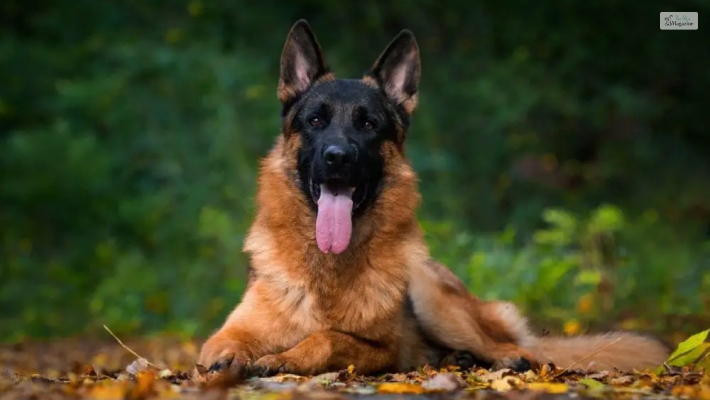
Panda German Shepherd is a full-bred German Shepherd with different coat colors. The different coat color is the result of gene mutation in their KIT Gene. This genetic mutation gives the Panda German Shepherd a unique piebald coat coloring.
White fur is unheard of in the German Shepherd family tree. This is the reason why the Panda German Shepherd is so unique. The white color fur is seen in the following body part. However, the exact location might vary from dog to dog.
- Collar Area.
- Chest.
- Stomach.
- End of their tail.
- Muzzle.
Other than their WHITE FUR, a Panda German Shepherds exhibits the following characteristics.
- The Head is proportional to the body.
- Almond-shaped non-protruding eyes.
- Muscular body.
- Thick feet with string nails.
- Pointy ears that stand straight.
Panda German Shepherd: Basic Facts
Panda German Shepherds are commonly known as Tricolor German Shepherd or Piebald German Shepherd. They are relatively new variations of the traditional German Shepherds.
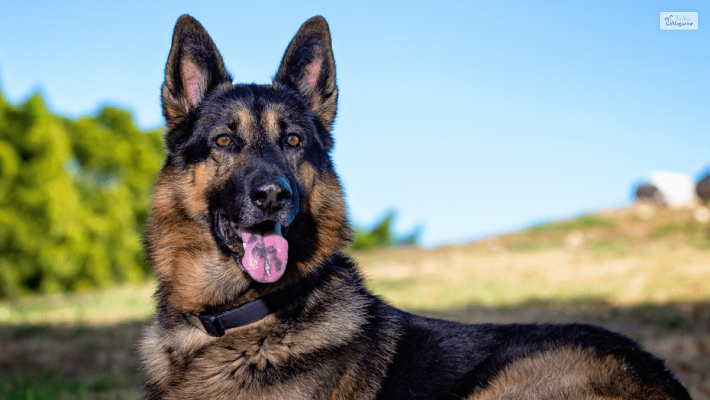
The first Panda German Shepherd was born in 2000 by two full-bred traditional German Shepherd Parents. This genetic mutation was due to her KIT Gene. This unique gene mutation was passed down to her puppies.
In general, Panda German Shepherd tends to be about 35% white fur and the rest black and tan coat. Their life expectancy is similar to a German Shepherd: 9 – 13 years.
Characteristics Of Panda German Shepherd
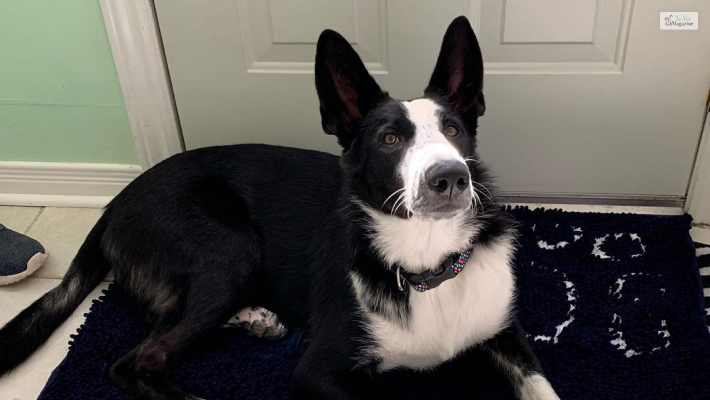
Panda German Shepherd dogs are all amazing dogs. They share the same character traits as the traditional German Shepherd dogs. These dogs are an excellent addition to the home as long as the owner can provide them enough physical exercise and mental stimulation.
1. Loyalty
Panda German Shepherds are a great addition to the family member list. They are quite passionate about their owners. With proper training, they do a great job of protecting the family members around them.
A properly trained Panda German Shepherd can distinguish between a threat and a non-threat situation. This allows them to make the right decision and become aggressive only when the owner is in danger.
2. Intelligence
German Shepherds are known for their intelligence. Panda German Shepherd has inherited the same. They have a strong nose that allows them to sniff out any intruders, drugs, and bombs.
Since they are smart enough to conduct hum work, they need frequent mental stimulation. This allows them to stay away from being bored. If they do not receive enough mental stimulation, they might act out of their nature and become destructive.
3. Confidence
Panda German Shepherds are generally poised, alert, keen learners and observe their surroundings. However, this confidence can only be achieved by an authoritative leader. If the owner is passive, their Shepherds become timid.
According to the Panda German Shepherd Standard, if any Panda German Shepherd dog hides behind their owner or cowers in the presence of strangers, they are faulty.
Panda German Shepherd’s Appearance
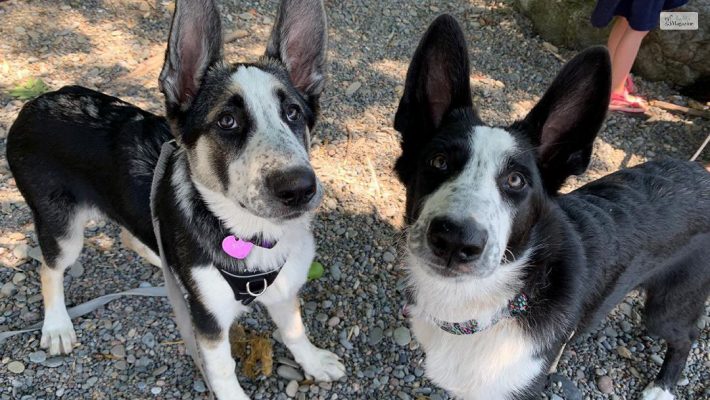
The Panda German Shepherds are categorized by the black and white marking on the face. These black and white markings give them the resemblance of a panda. While the white patches might vary depending on the dogs, the white patches are dominant on the following.
- Forelock.
- The muzzle.
- Chest.
- Abdomen.
- Tipo of the tail.
The weight of the Panda German Shepherd is 24 inches to 26 inches from shoulder to paw. Healthy dogs can weigh somewhere between 75 to 90 pounds.
As we have already stated, Panda German Shepherd has white patches on their coat, but that doesn’t limit to white color. Some Panda Shepherds might have a different third color.
Panda German Shepherd’s puppies are born with floppy ears. As they grow, their ears gradually develop, and when they hit adulthood, their ears stand up fully.
Health Concerns
Like normal German Shepherds, Panda German Shepherds are prone to some of the common health issues.
- Hip Dysplasia: Hip Dysplasia occurs when the hip bone does not form properly. Typically, the ball and socket joint that makes up the hip does not grow at an equal rate, which makes the hip joint loose. As a result, the body tries to stiffen up to support the hip, resulting in Osteoarthritis.
- Degenerative Myelopathy: It is a health issue that directly affects the spinal cord of the dog. This health issue degenerates the spinal cord, which results in weakening the hind legs.
- Bloat: Bloat happens when you feed your dog too much without helping them exercise. This results in the formation of gas. The gas builds inside the dog’s body, creating breathing problems. Feed your dog a small portion of meals to ensure this health issue never happens.
- Epilepsy: Epilepsy is a brain disorder that results in Seizures. It is the most common neurological disorder. This health issue is mostly transferred through genes but can also be due to brain injuries.
Some Other Health Issues:
- Dental problems.
- Urinary tract infection.
- Thyroid issues.
- Bladder stones.
- Nose Infection.
- Panosteitis.
- Diabetes.
- Epilepsy.
Panda German Shepherd Coat
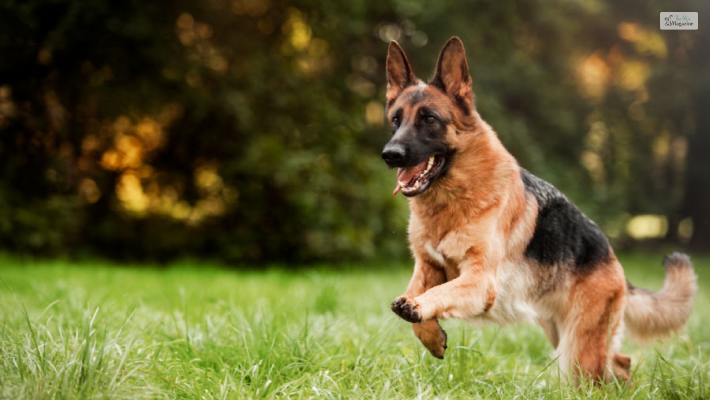
The Panda German Shepherd coat is of medium length. It comes with a mix of white, black, and tan coats. All the German Shepherd has a double coat: soft and thin inner coat and thick and waxy outer coat.
However, Panda German Shepherd has a medium coat that is easy to maintain. All you have to do is frequently brush the coat to remove any loose hair.
Exercise Requirement
All German Shepherds, including Panda German Shepherd, require at least 90 minutes of exercise daily. Therefore, if you are an owner with a busy schedule who cannot spend quality time with your dog, you must never think of getting a Shepherd for yourself.
Panda German Shepherds are active dogs; they need regular walks and exercise. If you do not provide them with the exercise, they might act out of character.
Nutrition Requirement
German Shepherds are all high maintenance. Therefore, they need high-quality dog food. The food should contain protein and all the other essential elements like vitamins, fats, and carbohydrates.
Before you purchase dog food for the Panda German Shepherd, 18% protein and 5% fat, the grade of the dog food should be evaluated based on their age. If you are trying to cut the cost, it is better to get a different breed.
Panda German Shepherds Temperament
Panda German Shepherd has a good reputation among all the breeds for being hardworking and obedient. They are eager to learn something new, curious, and do things that will please their master.
The key characteristics that make them perfect pets are their loyalty and affection for the humans around them. They crave human companionship and affection.
Given their size, they like to move around in big places. They are intelligent dog breeds, so if you have a small apartment, they adapt to adjust to it.
Panda German Shepherds’ inherent trait to be alert all the time ensures that your family members are safe from any strangers.
Just like other dogs, Panda German Shepherd needs to be socialized at an early age, especially when you have children in your home.
How To Care For A Panda German Shepherd?

If you are a German Shepherd owner, you need to be proactive with what you do. A German Shepherd tends to follow their master in terms of their behaviors. If you are passively in front of them, they will tend to inherit shyness – the last thing you would like to have in your German Shepherd.
Here are three things that you need to consider while taking care of a Panda German Shep-herd.
1. Food & Diet
Dry Kibble is easy and convenient food for your German Shepherd. They ensure all the vitamins and minerals for your four-legged companion. However, if you are not fond of commercial food products, you can feed them the following:
- Lamb.
- Venison.
- Pork.
- Fish.
- Beef.
- Leafy Greens.
- Yogurt.
- Egg.
2. Regular Exercise
Panda German Shepherd dogs are an active breed. Whenever you see them, they are always up to something. They love good physical exercise and mental stimulation. Hence, make time to take them out and play games with them.
Whether you are keeping one as a service dog or as a family pet, ensure that you start their training at an early age. Furthermore, socializing with others allows them to mature and become better companions.
3. Cleaning & Grooming
Panda German Shepherd dogs have medium coats and shed fur all year long. That means you need to brush their coat regularly.
Bathing should only be done when necessary, or it might damage the dogs’ skin. Make sure all the shampoo is washed away, and the cost is blocked.
Besides clearing Panda’s coat, clean the ear regularly and file down the nail to avoid unnecessary injuries.
FAQs (Frequently Asked Questions)
Now that you know what Panda German Shepherds are, here are a few questions with answers that will help you understand them better.
Q1. What Are Panda German Shepherds Mistaken For?
Panda German Shepherds are mostly mistaken for the Belgian Malinois Dog breed. Belgian Malinois were originally bred to be herding dogs. However, today, they are used as military dogs, protection dogs, and loving family members.
Due to the close resemblance of their physical characteristics and how they are being used, most people think that a Panda German Shepherd is Belgian Malinois.
Q2. What Parents Color Make A Panda German Shepherd Dog?
The color of the parents doesn’t matter. The first Panda German Shepherd dog was born from a traditional parent with a black and tan coat. The white patches on the German Shepherd come with the KIT gene.
Q3. What Causes A Panda-Colored German Shepherd?
A mutation in the KIT gene is the source of the dominant white patching on the German Shepherd Coat. This mutation is very recent and first surfaced in 2000 in a female German Shepherd called Lewcinka’s Franka Von Phenom.
Q4. Are Panda German Shepherds Rare?
Yes, the Panda German Shepherd is one of the rarest German Shepherd dogs. It shares its popularity with the Blue German Shepherd, which is equally rare.
Conclusion
A Panda German Shepherd is not the ideal dog for a person who just wants to have them for their beauty. They are the breeds that need high maintenance both physically and emotionally.
That’s it for this article; we hope that the article highlighted different aspects of Panda German Shepherd. If this article was helpful, do share it with others to learn what you have learned.







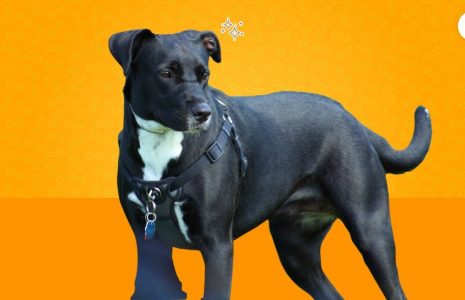
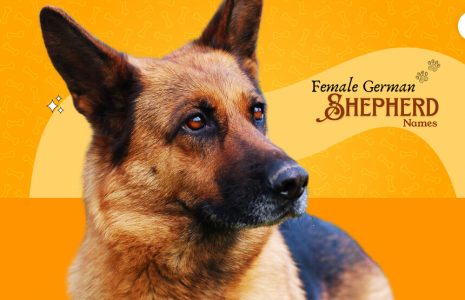
Leave A Comment